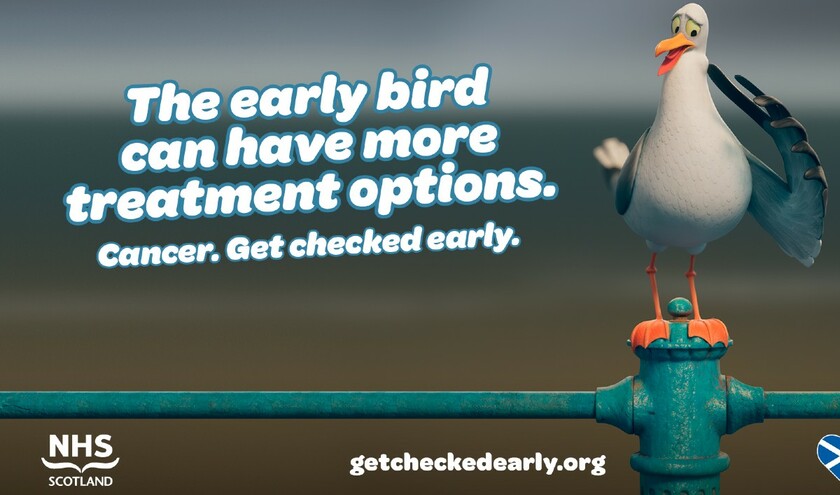Around 1,300 new cases are diagnosed each year - Scotland's sixth most common cancer - yet only one third are detected early.
The campaign, which encourages people to recognise possible cancer symptoms and not delay contacting their GP practice or dentist, features a new early bird ‘Bonnie the Seagull' who has a neck lump to highlight possible head and neck symptoms.
Running throughout March, the campaign will feature on out-of-home advertising, digital platforms and targeted field activity in supermarkets.
Cabinet secretary for health and social care Neil Gray said: ‘Early detection is so important to cancer care. The stories from our ‘early birds' demonstrate the positive impact it can have on treatment and outcomes.
‘So, I'm urging everyone to make sure they contact their GP practice about any unusual, persistent symptoms. The sooner we act, the better the chances for treatment and recovery. So, let's be vigilant – if something doesn't feel right, don't wait, get checked early.'
Dr Gillian Leslie, deputy chief dental officer for Scotland, said: 'Head and neck cancer incidence rates have gradually increased over the past decade, making early detection more important than ever. Dentists play a vital role in detecting signs of cancer. Routine dental examinations allow us to identify subtle changes in the mouth and throat, and surrounding tissues that could signal early-stage cancer.
'Early diagnosis leads to better treatment options, so we urge people to attend their check-ups. Most importantly, if you notice any sores, lumps, red or white patches that do not go away after three weeks, don't wait until your next appointment – we want to see you. It's crucial not to dismiss any potential symptoms. Get checked right away.'



